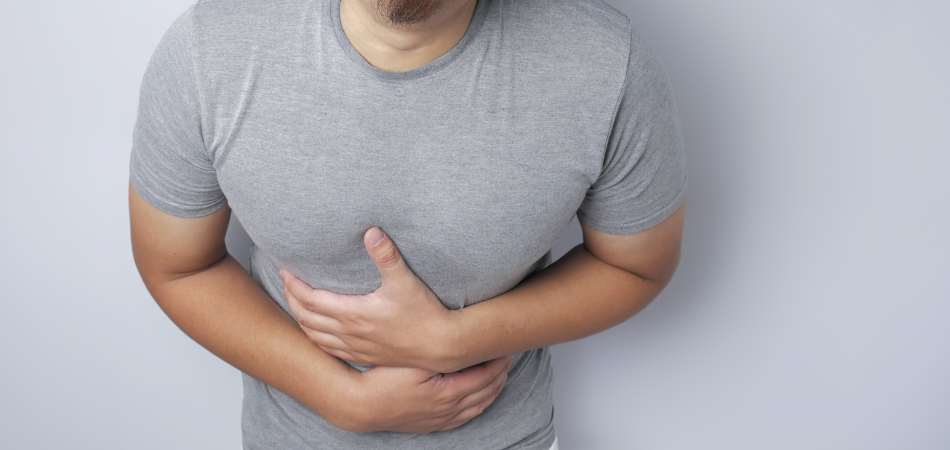
Written by:

Medically Reviewed by:
Last Updated:
August 13th, 2025
While naproxen on its own is not considered addictive, there is still some debate as to whether it is dangerous to take it alongside other substances like alcohol.
As a non-steroidal anti-inflammatory drug, or “NSAID”, naproxen can be highly beneficial in treating issues such as inflammation or pain in the muscles and joints. In this guide, we will help you to understand more about the dangers of mixing naproxen and alcohol, as well as how to spot the risks in yourself or someone you love.
Is it safe to mix naproxen and alcohol?
According to the NHS, drinking alcohol while taking naproxen is usually fine, as long as it is done in moderation. For this reason, it is always important to monitor your naproxen and alcohol use, keeping an eye on your intake to guarantee you are not over the recommended limit for either substance.
Side effects
If you have been drinking large quantities of alcohol, we would advise that you avoid taking naproxen to avoid any unwanted side effects. Some of these side effects can include:
- Nausea and vomiting
- Stomach pains
- Abdominal bleeding
- Heartburn
- Faintness
- Water retention
- Cardiovascular issues
Dangers of mixing alcohol and naproxen
Usually, people do not strive to abuse both naproxen and alcohol, because no attractive side effects come from mixing them both. For example, where some people might mix substances like alcohol and Xanax for a more intense high, taking naproxen alongside alcohol does no such thing. However, using both simultaneously can still result in dangerous consequences.
Alcohol has the potential to increase the volume of acid in your stomach, sometimes leading to irritation and soreness. Naproxen is also an NSAID, existing within a group of drugs that can interfere with the hormones needed to protect the stomach lining. For this reason, drinking alcohol and taking naproxen at the same time can put individuals at a heightened risk of gastritis. This is a condition which causes the stomach lining to become inflamed, resulting in uncomfortable symptoms which can include:
- Indigestion
- Stomach pain
- Nausea
- Loss of appetite
- Vomiting blood
Again, while naproxen is not considered to be addictive, it can still be unsafe when taken in high doses with alcohol. Therefore, we advise that you are always mindful of your health, whilst also remaining aware that drinking high volumes of alcohol regularly can also result in alcohol addiction.
How much naproxen is safe to use?
The amount of naproxen that is safe for use will depend on individual factors, some of which include:
- Your age
- Your reason for taking naproxen
- Your general state of health (specifically kidney functionality)
It is important to remember that, if users are taking naproxen for long-term health conditions like arthritis, they may be prescribed a larger dose to meet their health needs. However, it is generally understood that adults should start at their lowest dosage (typically in the form of a 220-milligram tablet) and wait to feel the effects. Then, if the user still experiences discomfort after the said dose, they are advised to wait six to eight hours before taking more naproxen. If some time passes and the individual still feels their dosage is too low, they are then instructed to discuss this with a doctor or pharmacist who can adjust the dosage as needed.
Naproxen can also come in varying forms and doses, sometimes sold in delayed or extended-release tablets, and even as a liquid to ingest by mouth. With this in mind, one naproxen tablet could actually contain a much higher dosage than anticipated, so it is always important to check the label to make sure.
How much alcohol is safe to consume?
The number of alcohol units advised for one person will differ from those recommended to another. This is because of varying factors, some of which include:
- Gender
- Age
- General state of health
Bearing this in mind, it is difficult to provide a precise figure for how much alcohol consumption poses a danger, and we would recommend consulting with a medical professional for specifics. However, from a more general perspective, alcohol guidelines state that it is recommended for adults to drink no more than 14 units of alcohol per week. This equates to:
- Six medium glasses of wine
- Six pints of beer
- Seven 50ml measures of spirits (such as gin or brandy)
With this information in mind, you can make a better prediction about your alcohol consumption. We would like to remind you, however, that there is no such thing as totally ‘safe’ drinking, but that with these guidelines, you are offered a good basis for consuming alcohol in a way that causes reduced damage to your health.
How Primrose Lodge can help
Here at Primrose Lodge, we are armed with a fantastic rehab treatment programme, designed to help clients overcome their issues with addiction once and for all. If, after reading the above guide, you have any concerns about mixing naproxen and alcohol, we would suggest that you contact our friendly admissions team right away; they are available to answer any questions you might have.




